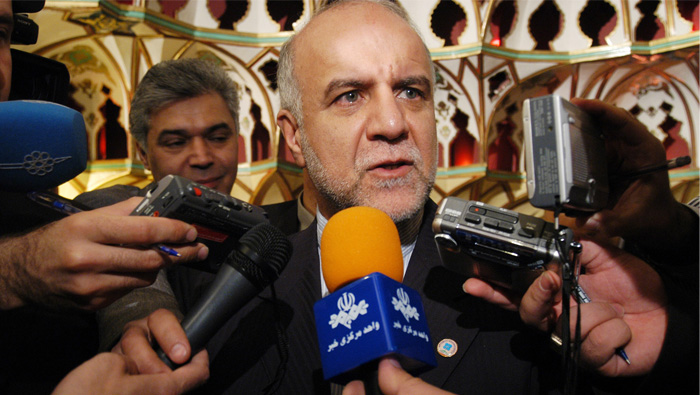
Algiers: Oil extended declines as Iran said it’s unwilling to freeze output at current levels and wants to raise production to 4 million barrels a day, damping expectations for Organisation of Petroleum Exporting Countries (Opec) to reach a deal to stabilise markets when the group meets on Wednesday in Algiers.
Futures fell as much as 1.7 per cent in New York. Prices rebounded 3.3 per cent on Monday after dropping Friday by the most in more than two months. It’s “ not on our agenda” to reach agreement at the Opec talks in Algiers, Iranian Oil Minister Bijan Namdar Zanganeh told reporters in the Algerian capital.
Iran, which produced about 3.6 million barrels a day last month, is seeking a 12-13 per cent share of Opec’s market, he added. The UAE supports a deal to freeze output if other nations agree, but production cuts are not up for discussion, Oil Minister Suhail Al Mazrouei said.
Oil has fluctuated since rallying in August on speculation major producers will agree on ways to stabilize the market when they meet Wednesday. While Saudi Arabia has offered to pump less crude if Iran caps output, the kingdom doesn’t expect an agreement this week. Freezing output was first proposed in February, but a meeting in April ended with no final accord.
"Our expectations are that there is no credible agreement, no credible outcome," said Norbert Ruecker, head of commodity research at Julius Baer Group Ltd. in Zurich. "If you look at the production levels of the leading oil producers except for the States, these all are very high, close to all-time highs, which shows that the petro nations -- they’re just in need of revenues."
West Texas Intermediate for November delivery was at $45.29 a barrel on the New York Mercantile Exchange, down 64 cents, at 9:47 a.m. in London. The contract gained $1.45 to $45.93 on Monday. Total volume traded was about 3 percent below the 100-day average. Prices have averaged about $44.81 this quarter.
Opec meeting
Brent for November settlement was 76 cents lower at $46.59 a barrel on the London-based ICE Futures Europe exchange. The contract gained $1.46, or 3.2 percent, to $47.35 on Monday. The global benchmark crude traded at a premium of $1.33 to WTI.
Saudi Arabia has offered to reduce production to January levels, according to Algeria’s Energy Minister. That would remove about half of the kingdom’s 1 million barrel-a-day increase in output since it led OPEC’s push to defend market share in 2014. Negotiations in Algiers will be a “ warm up” for OPEC’s next meeting in Vienna in November, Iran’s oil ministry news service Shana reported, citing Minister of Petroleum Bijan Namdar Zanganeh.
“There’s skepticism creeping in as to whether there will be an agreement at this meeting,” said Angus Nicholson, a market analyst in Melbourne at IG Ltd. “Still, there seems to have been some very strong groundwork laid for a possible deal in the coming months. There is a very significant psychological anchor for oil at around $45. It always seems to come back to that level.”
Iran produced about 3.6 million barrels a day in August, according to data compiled by Bloomberg. Oil market is trending in right direction and oil fundamentals will require higher prices in the long term, Saudi Oil Minister Khalid Al-Falih tells reporters in Algiers. Russia will discuss whether it will meet with all OPEC members, Russian Energy Minister Alexander Novak told reporters in Algiers. Oil markets are still oversupplied and won’t rebalance until late 2017 bar “major intervention,” International Energy Agency Executive Director Fatih Birol said in a Bloomberg TV interview in Algiers. U.S. crude stockpiles probably rose by 3 million barrels last week, according to a Bloomberg survey before an Energy Information Administration report Wednesday. That would be the first gain in four weeks.